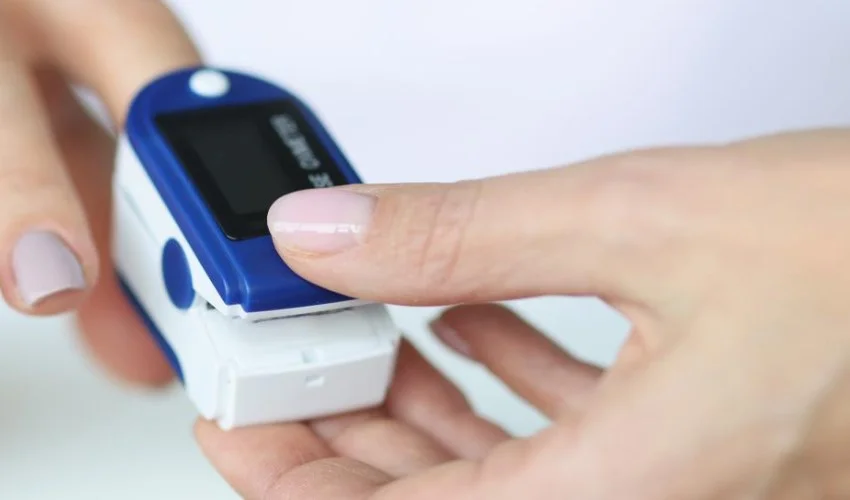Living with type 2 diabetes requires careful management and support from various stakeholders, including employers and educators. Effective communication with these individuals is crucial to ensure that the needs of people with diabetes are understood and accommodated. This article aims to provide valuable insights and practical guidance on how to communicate with employers and educators about diabetes needs. By following these strategies, individuals with diabetes and their caregivers can foster a collaborative and supportive environment that promotes overall well-being and success in educational and workplace settings.
Understanding Diabetes
An Overview Type 2 diabetes is a chronic condition characterized by high blood glucose levels resulting from the body’s ineffective use of insulin or insufficient insulin production. It is the most common form of diabetes, accounting for approximately 90-95% of all diagnosed cases (Centers for Disease Control and Prevention, 2021). The prevalence of type 2 diabetes is increasing globally, with significant implications for individuals and society as a whole.
Managing diabetes involves adopting a healthy lifestyle, monitoring blood sugar levels, taking prescribed medications, and making informed dietary choices. These responsibilities can have a substantial impact on daily life, including work and education. Therefore, effective communication with employers and educators becomes essential to ensure a supportive environment that accommodates the unique needs of individuals with diabetes.
The Role of Employers and Educators in Diabetes Support
Legal Obligations and Rights
Employers and educators have legal obligations to accommodate individuals with disabilities, including diabetes, under various laws such as the Americans with Disabilities Act (ADA) in the United States or similar legislation in other countries. These laws prohibit discrimination based on disability and require employers and educators to provide reasonable accommodations that enable individuals with diabetes to perform their job or educational tasks effectively.
It is crucial for individuals with diabetes and their caregivers to understand their rights under relevant legislation and ensure that employers and educators are aware of their legal obligations. Familiarize yourself with the specific laws in your country or region and consult resources such as the ADA or local disability rights organizations for more information (American Diabetes Association, n.d.).
Promoting an Inclusive Environment
Employers and educators play a pivotal role in creating an inclusive environment that supports individuals with diabetes. By fostering understanding and empathy, they can contribute to the overall well-being and success of individuals living with diabetes.
Promote a culture of inclusivity by providing education and awareness programs about diabetes. This can help dispel myths, reduce stigma, and create a supportive environment where individuals with diabetes feel comfortable discussing their needs. Encourage open communication and make it clear that employees or students are welcome to discuss their diabetes management requirements.
Recognizing the Challenges Faced by People with Diabetes
To effectively support individuals with diabetes, employers and educators must understand the challenges they may face. Diabetes management often involves monitoring blood sugar levels, administering insulin, or taking other medications throughout the day. Additionally, individuals may experience occasional fluctuations in blood sugar levels, which can impact their ability to focus or perform certain tasks.
Employers and educators should be aware of these challenges and be willing to provide reasonable accommodations to help individuals manage their conditions effectively. By understanding the specific needs of individuals with diabetes, employers and educators can work together to find suitable solutions that promote success and well-being.
Effective Strategies for Communicating Diabetes Needs
Know Your Rights and Resources
Before initiating a conversation about diabetes needs, it is crucial to be well-informed about your rights as an individual with diabetes. Familiarize yourself with the legal protections and accommodations available in your country or region. Refer to reputable resources such as the ADA, local disability rights organizations, or employment guidelines to ensure you have accurate information.
Additionally, access resources specific to diabetes, such as educational materials, brochures, or guidelines, to help explain the condition and its management to employers or educators. Being well-prepared with accurate information can strengthen your communication and advocacy efforts.
Establishing Open and Honest Communication Channels
Choosing the Right Time and Place
When discussing your diabetes needs, choose an appropriate time and place that allows for focused discussion. Request a meeting or find a quiet and private space where you can have an uninterrupted conversation. This setting will facilitate open dialogue and ensure that your concerns and needs receive the attention they deserve.
Active Listening and Empathy
Effective communication is a two-way process. Employers and educators should actively listen to the concerns and needs expressed by individuals with diabetes. Show empathy and try to understand their perspective. This approach will help build trust and foster a collaborative environment that supports the well-being of all parties involved.
Providing Accurate Information and Education
Sharing Personal Diabetes Management Plan
When communicating with employers or educators, share your personal diabetes management plan. This may include information about blood glucose monitoring, medication requirements, dietary considerations, and any necessary breaks or accommodations during the work or school day. Providing this information helps others understand the specific needs related to your diabetes management.
Educating about Diabetes Myths and Facts
Many misconceptions surround diabetes, which can lead to misunderstandings or stigma. Take the opportunity to educate employers or educators about the facts of diabetes. Share reliable resources, such as brochures or websites from reputable organizations like the American Diabetes Association or the International Diabetes Federation. This information will help dispel myths and enhance understanding.
Requesting Reasonable Accommodations
Identifying Workplace or Educational Challenges
Reflect on the challenges you face in your workplace or educational setting due to diabetes. These challenges may include access to healthy food options, breaks for blood sugar management, time off for medical appointments, or flexible scheduling. Identifying specific challenges will enable you to articulate your needs more effectively.
Suggesting Potential Accommodations
Once you have identified the challenges, suggest potential accommodations that could address them. For example, requesting access to a refrigerator to store insulin, having regular breaks to check blood sugar levels, or allowing flexibility in work or school schedules to accommodate medical appointments. These suggestions should align with the specific needs of your diabetes management plan and be reasonable in the context of your work or educational requirements.
Building a Support Network
Involving Healthcare Providers
In your communication with employers or educators, involve your healthcare providers, such as your primary care physician or endocrinologist. Request a letter or medical documentation that outlines your specific needs and accommodations. Having medical professionals involved can add credibility and support your requests for accommodations.
Seeking Support from Diabetes Organizations
Diabetes organizations and advocacy groups can provide valuable resources and support when communicating with employers or educators. These organizations often have guidance documents, template letters, or case studies that can help you navigate discussions about accommodations and offer further insights into effective communication strategies.
Practical Tips for Communicating Diabetes Needs
Prepare in Advance
Before initiating a conversation, take the time to prepare. Organize your thoughts, gather relevant information, and anticipate potential questions or concerns that employers or educators may have. Being prepared will increase your confidence and ensure a smoother communication process.
Use Clear and Concise Language
When discussing your diabetes needs, use clear and concise language. Avoid medical jargon and communicate in a way that is easily understandable to employers or educators who may not have a medical background. This will facilitate effective communication and enhance understanding.
Highlight the Benefits of Accommodations
When discussing accommodations, emphasize how they will benefit both you and the employer or educator. For example, explain how accommodating regular breaks for blood sugar management can help you maintain optimal health, leading to increased productivity and reduced absenteeism. By highlighting the positive outcomes, you can make a stronger case for accommodating your diabetes needs.
Follow Up and Provide Feedback
After the initial conversation, follow up with employers or educators to ensure that accommodations are implemented and working effectively. Provide feedback on any adjustments or improvements that may be necessary. Open communication and ongoing dialogue will contribute to a supportive environment for individuals with diabetes.
Case Studies: Successful Communication Stories
Workplace Scenario
In a workplace scenario, an employee with type 2 diabetes spoke to their employer about the need for a refrigerator to store insulin. The employee shared educational resources about diabetes management and the benefits of maintaining proper insulin storage. The employer, after understanding the importance of this accommodation, promptly provided a refrigerator in a designated area, ensuring the employee’s insulin remained safe and effective.
Educational Setting Scenario
In an educational setting, a student with type 2 diabetes communicated with their teacher about the need for breaks to check blood sugar levels and have a snack if necessary. The student explained the potential impact of uncontrolled blood sugar levels on concentration and academic performance. The teacher, recognizing the importance of managing the student’s diabetes, agreed to accommodate the breaks, which ultimately contributed to the student’s overall well-being and academic success.
Open and effective communication between individuals with type 2 diabetes, their caregivers, and employers or educators is vital for ensuring a supportive environment that accommodates their unique needs. By understanding the basics of diabetes, legal obligations, and effective communication strategies, individuals can advocate for themselves and promote positive change. Remember, fostering collaborative relationships and seeking support from relevant resources will enhance the overall well-being and success of individuals with diabetes in both educational and workplace settings.




